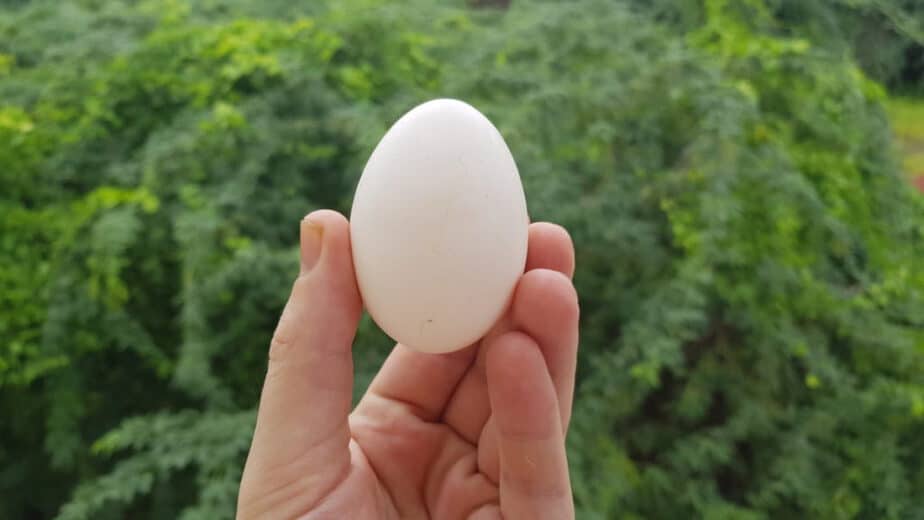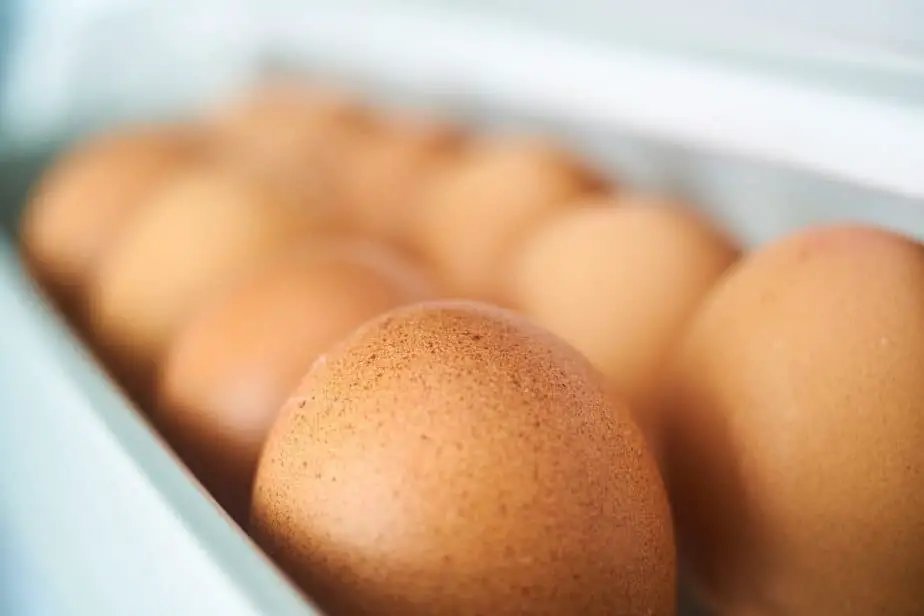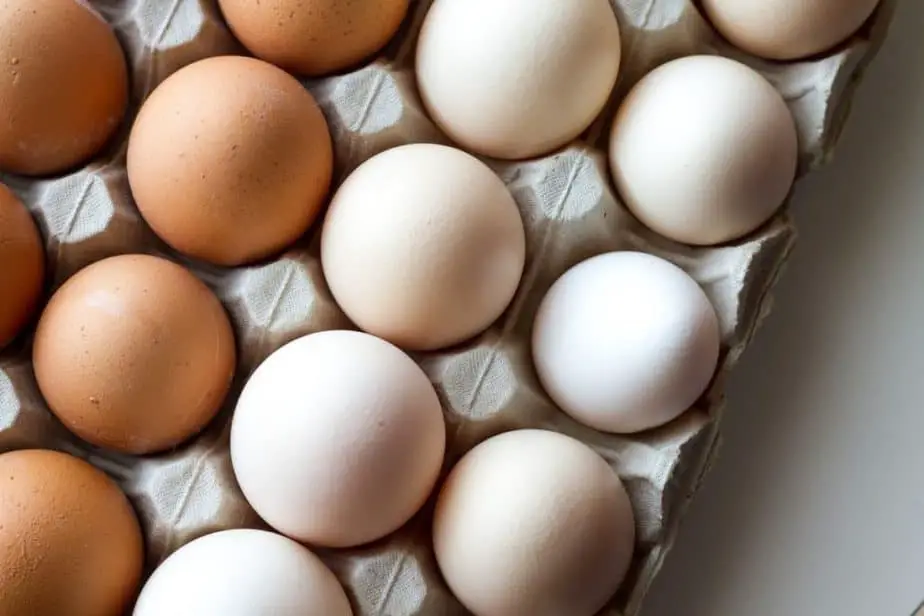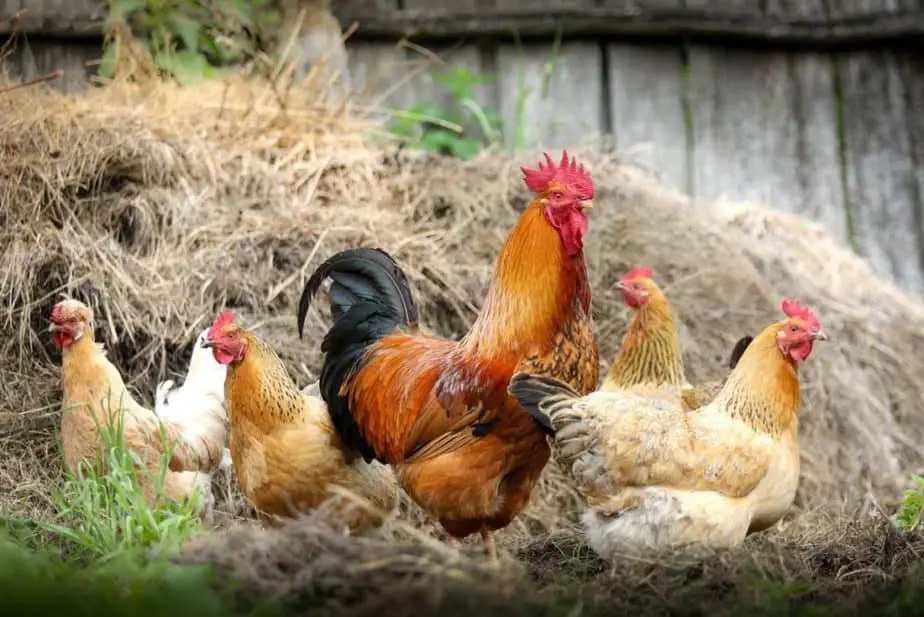I often start my day with a few hard-boiled eggs. I buy them at the local grocery store and it’s an inexpensive, simple, and filling breakfast here in India. However, I have been reading a few articles that have me concerned, so I started researching the question, is it safe and healthy to eat eggs in India?
Eating eggs is safe in India if the eggs are clean and refrigerated. Organic eggs are the safest option. You also need to clean, refrigerate, then cook them at temperatures over 160°F. Eating eggs has a risk of salmonella or they could have high levels of HCH, DDT, antibiotics, or metals.
One issue I’m running into is that I’m not sure where the eggs that I’m eating are coming from. They are all put into a bin in the local grocery store and there are no labels.
Considering how important eggs are to my diet I spent a few hours researching how I could eat eggs in a safe and healthy way.
If you’re traveling or living in India, then I hope this helps you enjoy what many people call a “superfood” …
How To Buy Safe and Healthy Eggs in India

The safest way to eat eggs in India is to find a local farmer with healthy chickens and buy your eggs from them. So do you have to drive to a local village and make friends with a farmer? Yeah, that would best, haha.
If you live in a big city like Delhi, Mumbai, Calcutta, Bangalore, or Goa though, that may not be an option so your second best option is to: Only buy organic eggs that are clearly labeled.
In my local grocery here in India, there are organic eggs with a label. The price is 100 rs for 6 eggs ($1.40 USD for 6 or about 23 cents per egg). In the USA, organic eggs cost about $1.50 to $2.50 for 6, so this seems like a fair price.
What about the unlabeled bin of eggs? There is a bin of eggs in my grocery store that are only 36 rs for 6 eggs… and the frugal shopper in me is tempted 🙂
I have been eating them and I feel good so far. Although the taste is a bit different… they taste a little fishy. I did some research and this might be because in large farms they feed the chickens fish meal and grain, because it helps them grow faster.
I asked the manager about those eggs and they said that they were “organic eggs” that came from local farmers as well. That sounds good… maybe they are saving money by not putting them in packaging?
I’m not 100% convinced though…
One thing that I’ve found in India is that: there’s a general tendency for people to just tell you what you want to hear.
For example, when I asked my landlord if the power would cut at my home, he said, “No, it never cuts.” But it cuts every week, haha. When I’m at a hotel and ask if the tv has channels, the manager will say “Yes, many channels.” Then you turn it on and there are two shopping channels, haha.
I’m going to pay the extra rupees for now and go with the labeled organic eggs. But I might run a stakeout on the grocery store, see who’s delivering the unlabeled eggs and follow them back to the source 😎
Raising chickens with the space to run around in the sunshine and freedom to eat bugs and worms, does cost significantly more…. which is why large factory farms can NOT do it.
They wouldn’t be able to pay their bills, so I get the dilemma and am willing to pay more for the healthy safe eggs. I feel good about supporting local farmers too!
However, if even I get healthy eggs, there’s still a chance I met get sick…
How to Safely Store Your Eggs in India

Once you get your organic eggs, now it’s your responsibility to make sure you don’t contaminate them yourself. Here are three rules to live by based on recommendations from the founder of Food Safety Helpline, Dr. Saurabh Arora’s recommendations:
The 2-Hour Refrigeration Rule: Dr. Saurabh Arora, says that eggs should be discarded if they have been left outside of refrigeration for 2 hours.
The power cuts in India present a problem here. Also, this not quite true since I have since bought a lot of eggs that are out and not had problems. But I do refrigerate them once I buy them.
Once a month, my power goes out for ~8 hours at a time. This is a scheduled outage, so to be safe, I will just make sure that I do NOT have eggs at the house at that time. Although if I keep the refrigerator door closed, it should retain a cool temperature for most of the day. Or I could also just cook up the eggs and eat up 🙂
The 40-Degree Refrigeration Rule: You also want to refrigerate your eggs at most 40°F (4.4°C). You can buy a refrigerator thermometer for less than $10 USD.
Ideally, the temperature of the refrigerator will not dip below 33°F (0°C), because you could kill off some of the healthy nutrients in the egg.
The 2-Week Egg Rule: You also want to only eat fresh eggs, so do NOT store your eggs for longer than 2 weeks before consuming.
There are some other important tips for safely storing your eggs as well:
- Wash the outside of your eggs before cracking.
- Wash your hands after handling your eggs
- Wash any utensils or plates or containers that have touched the outside of your eggs
- Use separate grocery bags for your eggs and other produce. You don’t want the outside of the eggs touching your fruits and vegetables.
If you’ve done all of that, then you’re odds of eating safe and healthy eggs just went way up. However, you could still make mistakes when preparing your eggs…
How To Safely Prepare Your Eggs in India

In the 1976 Hollywood blockbuster, Rocky… Sylvester Stallone’s character cracks 5 raw eggs and chugs it down early in the morning. From there people may think that eating raw eggs makes you strong and tough 💪 but actually you’ll absorb less of the protein from the egg. Sorry champ 😉
Plus, you put yourself at a significantly higher risk of getting salmonella in India.
FACT: A study shows when you eat cooked eggs you absorb ~90% of the protein. When you eat raw eggs you only absorb 50% of the protein.
Another study shows that salmonella contamination is still a real threat to eggs in India. Salmonella has been found on the shell of the eggs, which is a big reason why you want to wash anything that the shell of the egg touches.
If you wash your eggs, any containers that touch the eggs and your hands will be handling the eggs then your risk has already dropped. But you also want to cook the eggs properly.
FACT: To kill salmonella, the FDA recommends you cook your eggs at 160°F (71°C).
If you boil your eggs, then it will be over this temperature. When cooking omelets or scrambled, make sure the egg is NOT runny at all. It does NOT need to be overcooked though.
If you use an oven, you can check with a food thermometer. Or if you are all fancy, you can sous vide your eggs to be certain of the temperature.
Characteristics of Healthy Eggs That You Can See

When you’re looking at your eggs, there are a few characteristics that will confirm that you’ve bought some healthy eggs:
- Clean shells: The Food Safety and Standards Act of India (FSSAI) states that eggshells should have “no blood rings, fecal matter, or be cracked and leaking.” Ugh, the eggs at my local grocery store do have marks that look brown and streaky 🤢 I have been washing my eggs but now I’m avoiding them!
- Thick shells: If a chicken eats a healthy diet with calcium, the eggshell will feel thick and hard and won’t easily crack. Although this might be misleading because baking soda and ammonium chloride can be added to a chicken’s diet to also get thick shells 🤔 A thin shell might mean the chicken was sick with a disease like bronchitis or was stressed though so having a thick shell is better than NOT having it.
- Bright yellow yolks: Pale yolks mean the animal may have had a disease or been fed a diet that was not rich in nutrients. A healthy bright yolk will have nutrients like Vitamin D, vitamins A, B6 and B12, thiamine, zinc, iron, phosphorus, and folic acid.
- Thick albumen: It is rich in protein and riboflavin, and should NOT be extremely runny. The thicker, the better.
- No fishy smell: Fish is one main ingredient in the diet of chickens in large farms, so if you’re smelling or tasting that, you may want to try another brand of eggs.
What Are the Health Benefits and Risks of Eating Eggs?

The Guardian found that India’s chicken farms could be giving their birds some of the strongest antibiotics on the planet. There are plenty of other studies and investigations and videos showing the lack of regulations in poultry farms in India.
It’s not a problem that’s only in India either.
I had a girlfriend who raised her own chickens and would lament how poorly farmers in the USA treated their chickens as well. I can almost recite what she would say word for word… “they keep them in a little coop, pump them full of drugs, and they live in their sh**,” or something like that, haha.
Raising free-range chickens that run around and eat flies and stuff, is expensive and time-consuming. So it makes sense that farmers across the world are cutting corners to pay the bills.
If you follow the tips above, you should minimize your risks and still be able to eat eggs in the morning with all the protein and healthy nutrients they can provide.
Related Questions:
What Are the Best Eggs to Eat in India?
Go to a village and find a local farmer who raises free-range chickens. Or Happy Hens sells free-range eggs. Ayur eggs are organic. Look at the label for “organic” or “herbal eggs.” Avoid eggs with dirty thin shells and pale yolks.
Is It Safe to Eat in Hotels in India?
The nicer the hotel, the more money they have to make sure the food is safe. They can buy water purifiers for drinks and ice. They can hire and train workers to wash properly. They can grow organic lettuce for their restaurant. There is not a 100% way to know for each restaurant, however, you can make an educated decision based on the reviews on a hotel booking app like Booking.com
Eating Meat in India: Is It Safe and Available?
One survey shows that +70% of Indian’s population eats meat. Most only eat chicken, lamb, goat, or buffalo. But 7% of the population eat beef. It is often based on regional preferences for instance in Kerala it is common for people to eat beef. Whereas in Delhi it is socially unacceptable to eat beef. It is more difficult to prepare and serve meat hygienically so you run a higher risk of a health issue, but when approached with common sense you should be okay.
Is It Safe to Eat Chicken in India?
Chicken is commonly eaten in many places in India. It is more difficult to serve chicken in a safe sanitary way than a vegetarian meal, yet if you practice common sense, make sure your chicken is always cooked and eaten hot, and you read the online reviews of restaurants you will minimize your risks.
Is It Safe to Eat Bananas in India?
Bananas are one of the safest fruits to eat in India because they have a thick peel. There may be pesticides or chemicals on the peel though, so you can learn to peel your banana with one hand here. Or read my article about this and other tips to avoid getting sick in India here.


